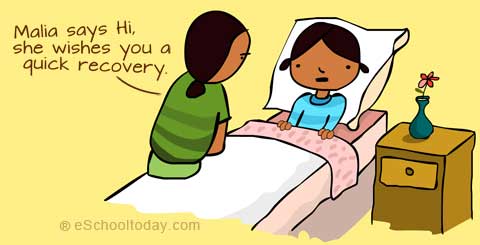 |
Treatment of Cancer
There are four standard methods of treatment for cancer: surgery, chemotherapy, radiation therapy (also called radiotherapy), and immunotherapy/biologic therapy. An oncologist will provide the patient with cancer treatment options after diagnosis of the cancer. They are the experts and can give you good advice, but ultimately, the patient has to decide what kind of treatment they want. Some treatment options can be used by itself, with surgery, with radiotherapy or together with others.
 Chemotherapy Chemotherapy
Chemotherapy (chemo) is a drug treatment aimed to cure cancer or relieve any symptoms cancer can cause. Chemotherapy either kills cancer cells or stops them dividing. Your doctor will discuss the best options with you and your family if you wish. This is administered in many ways: by injections, infusion (drip), continuous infusion (usually carried around as you go about your daily business), as tablets that you swallow, or as ointment to be applied to skin. There are various types of cancers and so naturally, chemo treatments will vary.
 Radiotherapy Radiotherapy
Radiotherapy is a way of treating or managing cancer using radiation. It works by damaging cells in the area being treated - over half of cancer patients will receive radiotherapy at some point in their treatment. Radiotherapy can be given as teletherapy (also known as external beam radiotherapy), when a beam of radiation is aimed at the area to be treated from a machine located away from the patient.
 Immunotherapy/biologic therapy Immunotherapy/biologic therapy
Immunotherapy is also sometimes called biologic therapy or biotherapy. It is treatment that uses certain parts of the immune system to fight diseases such as cancer. This can be done in a couple of ways: Stimulating your own immune system to work harder or smarter to attack cancer cells or Giving your immune system components, such as man-made immune system proteins, or by training the immune system to attack some part of cancer cells specifically.
CARE For Patients

It is very important that people with cancer are given full respect, love and attention to help them recover well. You should work closely with the doctor (or nurse), and assist with the treatment programme. If there is a lot of money involved and you think you need a bit of help, discuss with your doctor for charity organizations to come in. These charity organizations may also have special skills in helping people, children and families with cancer members.
NOTES
 An Oncologist is a cancer specialist An Oncologist is a cancer specialist
 Radiation is a process where energy emitted by one body travels in a straight line through a medium or through space. Radiation therapy uses high-energy radiation to shrink tumors and kill cancer cells. This is done carefully because it can also destroy good cells Radiation is a process where energy emitted by one body travels in a straight line through a medium or through space. Radiation therapy uses high-energy radiation to shrink tumors and kill cancer cells. This is done carefully because it can also destroy good cells

|
 |
